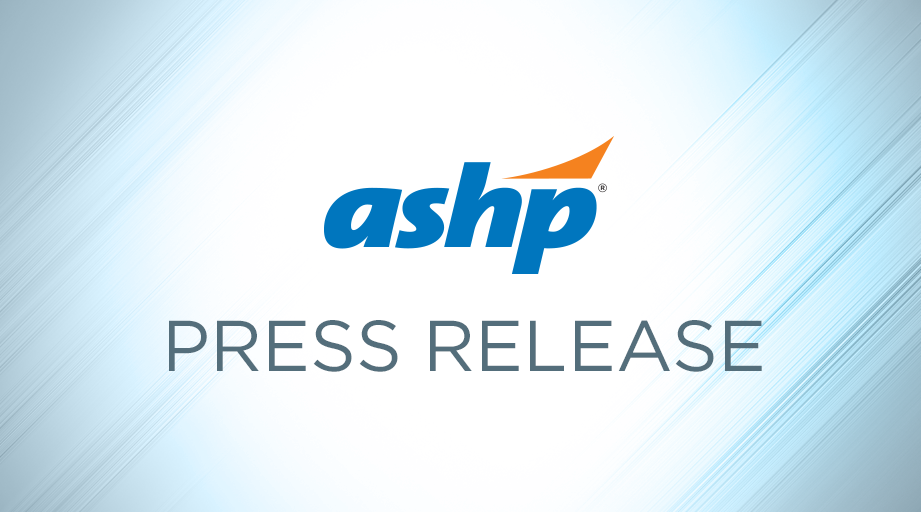
Approved Policies Address Gene Therapy, Unit Dose Packaging, and Drug Dosing
ASHP’s virtual House of Delegates recently approved professional policies on gene therapy, unit dose packaging availability, and drug dosing in conditions that modify pharmacokinetics or pharmacodynamics, among other topics. Following discussion in the House of Delegates community on ASHP Connect, delegates voted online during the week of March 16–23.
At the virtual House of Delegates, policy recommendations must be approved by at least 85 percent of delegates to become ASHP professional policy. Recommendations that do not reach that level of consensus are considered by the House of Delegates at the ASHP Summer Meetings. More than 96 percent of state delegates participated in voting in the virtual House of Delegates to approve the following nine policies:
- Gene Therapy
To assert that health-system decisions on the selection, use, and management of gene therapy agents should be managed as part of the medication formulary system in that (1) decisions are based on clinical, ethical, legal, social, philosophical, quality-of-life, safety, comparative effectiveness, and pharmacoeconomic factors that result in optimal patient care; and (2) such decisions must include the active and direct involvement of physicians, pharmacists, and other appropriate healthcare professionals; further, to advocate that gene therapy be documented in the permanent patient health record; further, to advocate that documentation of gene therapy in the permanent patient health record accommodate documentation by all healthcare team members, including pharmacists. (Replaces ASHP policy 0103)
- Unit Dose Packaging Availability
To advocate that pharmaceutical manufacturers provide all medications used in health systems in unit dose packages or, when applicable, in packaging that reduces medication waste; further, to urge the Food and Drug Administration to support this goal in the interest of public health and healthcare worker and patient safety. (Replaces ASHP policy 0309)
- Drug Dosing in Conditions that Modify Pharmacokinetics or Pharmacodynamics
To encourage research on the pharmacokinetics and pharmacodynamics of drugs in acute and chronic conditions; further, to advocate healthcare provider education and training that facilitate optimal patient-specific dosing in populations of patients with altered pharmacokinetics and pharmacodynamics; further, to support development and use of standardized models, laboratory assessment, genomic testing, utilization biomarkers, and electronic health record documentation of pharmacokinetic and pharmacodynamic changes in acute and chronic conditions; further, to collaborate with stakeholders in enhancing aggregation and publication of and access to data on the effects of such pharmacokinetic and pharmacodynamic changes on drug dosing within these patient populations. (Replaces ASHP policy 1720)
- Confidence in the U.S. Drug Approval and Regulatory Process
To support and foster legislative and regulatory initiatives designed to improve public and professional confidence in the drug approval and regulatory process in which all relevant data are subject to public scrutiny. (Replaces ASHP policy 9010)
- Medications Derived from Biologic Sources
To discontinue ASHP policy 0809, Medications Derived from Biologic Sources, which reads: To encourage pharmacists to take a leadership role in their health systems for all aspects of the proper use of medications derived from biologic sources, including preparation, storage, control, distribution, administration procedures, safe handling, and therapeutic applications; further, to facilitate education of pharmacists about the proper use of medications derived from biologic sources.
- Role of Pharmacists and Business Leaders in Health Care Services and Policies
To discontinue ASHP policy 9819, Role of Pharmacists and Business Leaders in Health Care Services and Policies, which reads: To support the principle that business leaders and health professionals must share responsibility and accountability for providing optimal health care services to patients; further, to support the principle that business leaders should expect practicing pharmacists to formulate policies that affect the prerogative of pharmacists to make optimal care decisions on behalf of patients.
- Size, Color, and Shape of Drug Products
To discontinue ASHP policy 8310, Size, Color, and Shape of Drug Products, which reads as follows: To approve the authority of manufacturers to copy the size, shape, and color of generically equivalent drug products as a means of promoting better patient compliance (rational drug therapy), but only when the source and identity of the product are readily ascertainable from a uniform mark or symbol on the product.
- Appropriate Dosing of Medications in Patient Populations with Unique Needs
To discontinue ASHP policy 0228, Appropriate Dosing of Medications in Patient Populations with Unique Needs, which reads: To advocate reforms in medication-use systems, including electronic systems, and healthcare provider education and training that facilitate optimal patient-specific dosing in populations of patients with altered pharmacokinetics and pharmacodynamics.
- DEA Scheduling of Hydrocodone Combination Products
To discontinue ASHP policy 1314, DEA Scheduling of Hydrocodone Combination Products, which reads: To advocate that the Drug Enforcement Administration (DEA) reschedule hydrocodone combination products to Schedule II based on their potential for abuse and patient harm and to achieve consistency with scheduling of other drugs with similar abuse potential.
One additional policy on pharmacy practice training models did not meet the required 85-percent level of consensus. That policy recommendation will be discussed during the in-person meeting of delegates at the ASHP Summer Meetings in June.
“Since its launch in November 2015, the virtual House of Delegates has proven to be an innovative and nimble approach to quickly create professional policies that address rapidly evolving developments in patient care and pharmacy practice,” said ASHP CEO Paul W. Abramowitz, Pharm.D., Sc.D. (Hon.), FASHP. “The virtual House of Delegates is also a wonderful way to engage our members and an important means to help ASHP continue to be the leading organization that takes timely and relevant positions on the most important issues facing our 45,000 members and the patients they serve.”
The House of Delegates, ASHP’s chief policymaking body, consists of 163 voting state delegates (a minimum of two from each state, the District of Columbia, and Puerto Rico), members of the Board of Directors, past presidents of ASHP, chairs of ASHP’s sections and forums, and five delegates representing the federal services. For more information about the virtual House of Delegates, refer to these frequently asked questions.
About ASHP
ASHP represents pharmacists who serve as patient care providers in acute and ambulatory settings. The organization’s 45,000 members include pharmacists, student pharmacists, and pharmacy technicians. For more than 75 years, ASHP has been at the forefront of efforts to improve medication use and enhance patient safety. For more information about the wide array of ASHP activities and the many ways in which pharmacists advance healthcare, visit ASHP’s website, www.ashp.org, or its consumer website, www.SafeMedication.com.








